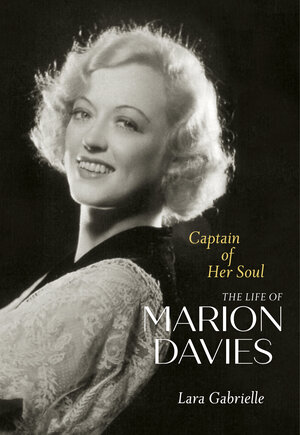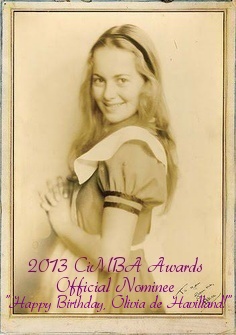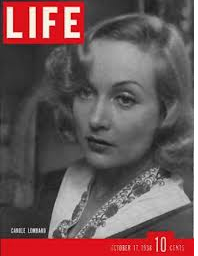
Patty Duke with Helen Keller, whom she portrayed in The Miracle Worker (1962).
I was shocked and saddened today to learn of the death of Patty Duke, the actress and activist whose legacy spanned the entire scope of the entertainment world and beyond.
At 16 years old in 1963, Patty Duke was the youngest person to win an Oscar up to that time, for her extraordinary work playing Helen Keller in The Miracle Worker, a role she had also originated on Broadway. Years later, she became president of the Screen Actors Guild, only the second woman to hold the post in the history of the organization. All the while, she battled a debilitating case of bipolar disorder, a challenge that she outlined in her autobiography and over which she ultimately gained control, to become one of the most prominent and active voices in the push for mental health awareness.
I was lucky enough to meet Anna (as she liked to be called) when she came to San Francisco in 2009 to play in the touring production of Wicked. She impressed me mightily. Down-to-earth, sweet, kind, and smart as a whip, she embodied the spirit of how to come through some of life’s biggest challenges without a trace of bitterness.
Born Anna Marie Duke in 1946, she entered show business at a very young age, represented by a couple named the Rosses. Although it was under their supervision that she garnered the role of a lifetime in The Miracle Worker, the Rosses were the very definition of nightmare managers. Changing her name from Anna to “Patty” in order to make her more marketable as a child star, and the couple became increasingly manipulative and abusive toward her as she grew. The torment she suffered at their hands probably led, she later said, to the manifestation of the illness that defined much of her life.
After her breakthrough role in The Miracle Worker and winning the Oscar for the film version in 1963, she was given her own TV show, The Patty Duke Show, that showed her in quite a different light. Playing a typical teenager living at home with her parents and little brother, the show depicted a life that was anything but typical for the young actress. Nonetheless, the show may be how most people, that is, baby boomers and those of us who grew up with Nick @ Nite, remember Patty Duke. As “identical cousins” Patty and Cathy Lane, she displays a versatility and ability for a nuanced performance that is remarkable for the teenager that she still was. In several episodes, the plot calls for one “cousin” to impersonate the other. In her performance, Patty Duke makes clear, in a way that is somewhat intangible, that she is playing a character doing an impression. We, as the audience, can make a distinction between Duke’s portrayals of “Patty” and “Patty playing Cathy,” through small but distinct trademarks that she weaves into the characters. That type of dramatic nuance rarely existed in sitcoms of the early 1960s, and especially not when it came to standard teenage fare that The Patty Duke Show aimed to be.
Toward the end of the show’s run in 1966, she finally managed to extricate herself from the tight grip of the Rosses and take control of her own career.
Shortly after the wrap of The Patty Duke Show and in the wake of her newfound independence from the Rosses, she began filming Valley of the Dolls in the role of Neely O’Hara, a character loosely based on Judy Garland. The director was terrible and the material mediocre, and its critical failure left Duke ashamed of having been involved with it at all. But the movie has become a camp classic, and she came to embrace in later years. During the run of Wicked in 2009, Duke participated in a wonderful event at the Castro Theatre in which she was interviewed prior to a screening of Valley of the Dolls. I was in the audience that night, as her wit and intelligence shone through as she told the story of working with Judy Garland herself, originally cast as Helen Lawson, in the early days of filming Valley of the Dolls.
By the time of Valley of the Dolls, her health was starting to spiral out of control, and it affected her work in the 1970s and 1980s. In spite of erratic appearances at awards shows and in public, she managed to continue to work, and work effectively. She married actor John Astin in 1972, and had two sons, Sean and Mackenzie. In 1985, she was named president of the Screen Actors’ Guild and presided over difficult and tumultuous times for the organization. After finally receiving a mental health diagnosis in the mid-1980s, she spoke of the feeling of relief that it gave her. “I thought ‘thank God,” she later said. “It has a name.” She wrote her autobiography, Call Me Anna, in 1987 that dealt in detail with the diagnosis and her harrowing childhood. It was eventually made into a TV movie, and she retired from her position as the president of the Screen Actors’ Guild in order to produce and star in it herself. She stabilized her own condition shortly following the diagnosis and became a voice for mental health, the likes of which had not been seen before her.
Her marriage to John Astin dissolved around the time of her presidency of the Screen Actors’ Guild, and on the set of a TV movie in 1985 she met her future husband, Mike Pearce, to whom she would remain married for the rest of her life. They adopted a third son, Kevin, in 1988, and on March 15 celebrated their 30th wedding anniversary.
I’ve had the great fortune to have met many well-known people from the classic film world, but since I met Anna in 2009, she has held a truly special place in my heart. I am often asked for stories about the people I’ve been able to meet, and I have always said that my experience with Patty Duke is the most treasured of all. The sheer force of her personality, her warmth, and her affection were contagious, and I felt her love of life radiating from her. It is difficult to know that she is gone now, but her contributions to the industry will live on, as will my memories of her.

With your author in 2009.



























_03.jpg)


A lovely tribute – I’m sorry to know she is gone. She was amazingly talented and suffered a lot. But I’m glad to know she found happiness in later life.
Thank you. She was a wonderful woman.
A wonderful tribute, thank you.
She was a special person. Thank you for reading.
Such a wonderful tribute. She would have appreciated it. Thanks!
Great tribute. RIP Patty Duke.